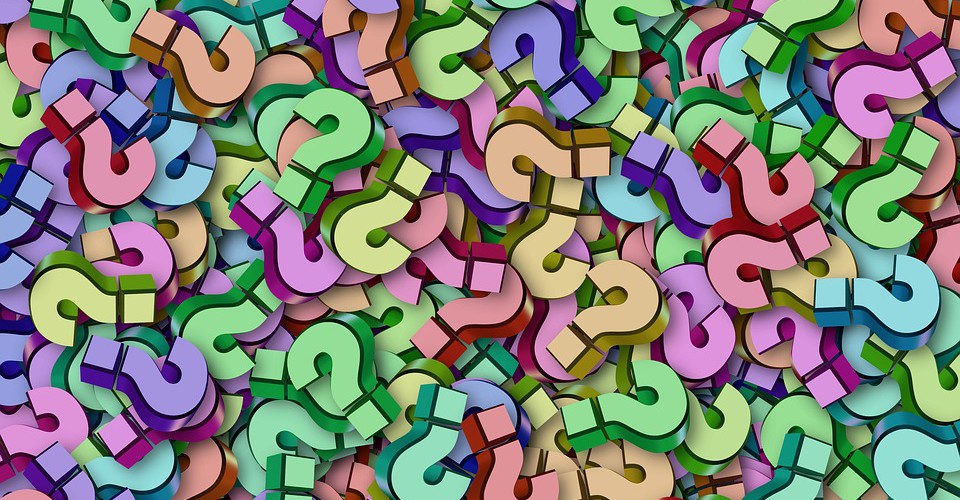 Forex trading is a process in which, you can earn money by speculating about the changes of the currency exchange rates. At first, this may sound complicated, but it really isn’t. If you are a newbie, you might want to read my initial article about forex: Getting Familiar With Forex.
Forex trading is a process in which, you can earn money by speculating about the changes of the currency exchange rates. At first, this may sound complicated, but it really isn’t. If you are a newbie, you might want to read my initial article about forex: Getting Familiar With Forex.
This is the first article of the series called “Forex For Beginners“, where I explain basic stuff, that a beginner should know. I created it, because when I was a beginner, I was scared to even start. There is so much information, that I simply had no idea where to begin. This feeling is really unpleasant.
The world of forex and markets in general, is very interesting and full of opportunities. Potentially, you can earn as much as you want. Every market has its own characteristic and forex is no exception. But in order to start with more specific theories, you need to learn the basic. Enjoy 🙂![]()
What Are You Doing When You Trade Forex?

EUR/USD chart.
Generally speaking, you are watching currency quotes and trying to predict its movements. You can use the calendar of the upcoming financial news, various indicators, price action method or all of them in combined. ( We’ll discuss that in other articles.)
For example, imagine the situation where you expect the euro to strengthen in value relative to the U.S. dollar. In this case, you are going to sell U.S. dollars and buy euros. If you were right and the euro has strengthened, now you can buy back more dollars, for the euros that you have. Now you have more dollars than you had in the beginning. You made a profitable trade.
But if you were wrong and the euro has weakened, the purchasing power to buy dollars is now decreased. Now you can buy back fewer dollars than you had before. But if you expect the euro to strengthen again, you can wait. Often it gets back, but sometimes it can get even worse, it’s your choice to take the risk.
Forex trading is similar to stock trading. When you trade stocks, you buy if you expect the price to increase and sell, when you expect the price to fall. The only difference is, that with stocks it’s only possible to get profit when the price increases, but with forex, you can make money when the price moves in both directions.
![]()
Forex Quote

When a currency is quoted, the value of one currency is reflected through the value of another. For example, if you’re trying to determine the exchange rate between the euro (EUR) and the U.S. dollar (USD), the forex quote would look like this: EUR/USD = 1.10105. This is called a currency pair.
Every currency in the world has a three letter code. The currency on the left is called the base (domestic) currency, and on the right is the quote (counter) currency.
The base currency is always equal to one unit (In this case €1), and the quoted currency (in this case the U.S. dollar) is what that one base unit is equivalent to in the other currency. So our quote means that one euro can buy 1.10105 U.S. dollars, or €1 = $1.10105.
Direct and indirect quotes: when fixed units of foreign currency are quoted against variable amounts of the national currency it’s called a direct quote. The currency rate recording, when the price of a national currency is expressed in variable units of the foreign currency, is called an indirect quote. For example, in Japan USD/JPY is a direct quote, while JPY/USD would be indirect.
But since forex is a global market, there is no national currency and the main currency in the U.S. dollar. With some currencies, the USD is a base currency, and it is called an indirect quote. With the majority of currencies, the USD is a quoted currency, and it is called a direct quote. For example, in USD/JPY pair, the USD is a base currency and it’s an indirect quote. GBP/USD is a direct quote currency.
When a currency quote is given without the U.S. dollar as one of its components, this is called a cross currency (for example, EUR/JPY, EUR/CHF).
![]()
What Is Leverage/Margin?
The exchange rates usually move very little, that’s why most currencies are quoted to four decimal places. Leverage is the amount that you can borrow from your broker for a security deposit. It lets you make a profit from even the smallest movements of the price, but it also increases the risk.
Let’s say you have the leverage of 100:1 and $100 in your broker account. It means that you can trade with the maximum amount of $10 000, if you want to trade with $100, you only need $1. If you wouldn’t have any leverage your profit (and loss) would be 100 times smaller!
Different brokers provide different leverage, it varies from 5:1 to 2000:1. It’s recommended to choose smaller leverage 50:1 or even 20:1 if available because higher leverage means not only higher profit but also higher risk.
The specific amount that you are required to put aside to open and maintain a position is called your margin requirement. This is not a fee or a transaction cost, it’s simply a part of your account set aside and allocated as a margin deposit.
![]()
Other Important Definitions
Standard Lot: for simplicity, most brokers are using a “standard lot” system to specify the trade size. 1 lot represents 100 000 units of the quote currency, mini lot (0.1) represents 10 000 units and a micro lot (0.01) is 1 000 units. So if you have $100 in your account and leverage is 100:1, you can place maximum a mini lot. A one pip movement for a standard lot corresponds with a $10 change, mini lot $1 and micro lot $0.1.
A Pip stands for “Percentage In Point”. Most currency pairs are quoted in four decimal places (0.0001), except Japanese yen pairs which are quoted in two (0.01). And that’s referred to as a pip. This is the minimal price change. For example, if the EUR/USD falls from 1.0945 to 1.0935, the pair has fallen 10 pips.
 Bid and Ask: when you are trading a currency pair there’s a bid price and an ask price. When you buy a currency pair, the ask price represents the amount of quoted currency that needs to be paid to buy one unit of the base currency.
Bid and Ask: when you are trading a currency pair there’s a bid price and an ask price. When you buy a currency pair, the ask price represents the amount of quoted currency that needs to be paid to buy one unit of the base currency.
When you want to sell a currency pair the bid price is used and it reflects how much of the quoted currency will be obtained when selling one unit of the base currency.
Quote on the left side of the slash represents the bid price, and the two digits on the right side represent the ask price (usually are quoted only the last two digits of the ask price): AUD/USD = 0.7435/45, it means that the bid is 0.7435 and the ask is 0.7445.
So if you want to buy this currency pair, you should look at the ask price to see how much U.S. dollars the market will charge for Australian dollars. According to the ask price, you can buy one Australian dollar with 0.7445 U.S. dollars.
If you want to sell this pair, you should look at the bid price. It tells you that the market will buy 1 AUD (base currency), for the price equivalent to 0.7435 USD (quoted currency).
Spread: it’s the difference between the bid price and the ask price. Whenever you open a position (buy or sell), later you will need to close it. When closing, you perform a reverse action (if you bought, then you sell, and if you sold, then you buy). And because of that, the difference between bid and ask always affects you.
So it means that the narrower spread is better for you. In our case, the spread is 10 pips. This is very high and it usually occurs only during weekends or important financial news.
Part Two Is Here: How To Choose a Forex Broker? | Forex For Beginners Nr.2
![]()
If you have any questions, feel free to ask them in the comments 🙂
Share with friends if it was helpful!
-Grey


Hello
I first heard about forex trading online some time ago.It`S interesting that unlike in the olden days where forex for big men with real money,anyone can today trade forex online with little investment.
I have never done forex online or offline,but after reading your well-written post where you explained everything to little details, I’m interested of giving online forex a go.
It`s more appealing because i do not have to invest too much and more or less,i don’t have to be an expert
Hi,
Yes, back in the day you had to be already rich to start investing. Now it’s different, anyone can start trading with very small amounts. People are evolving and with time the number of opportunities also increases.
I’m glad that I was able to help you. Start with the demo account and best of luck!
Grey